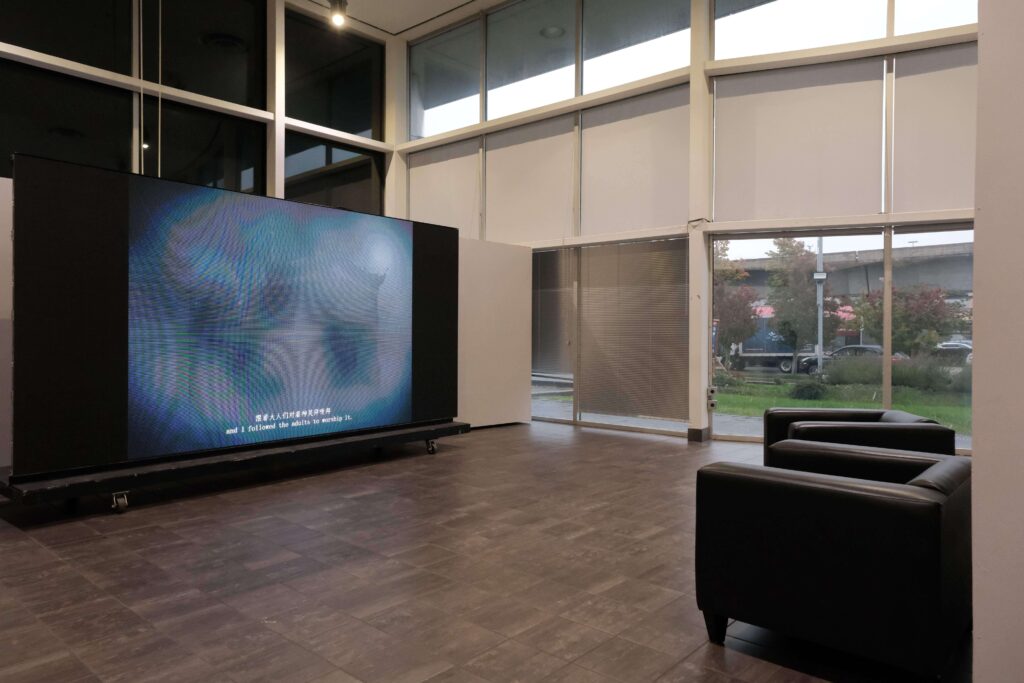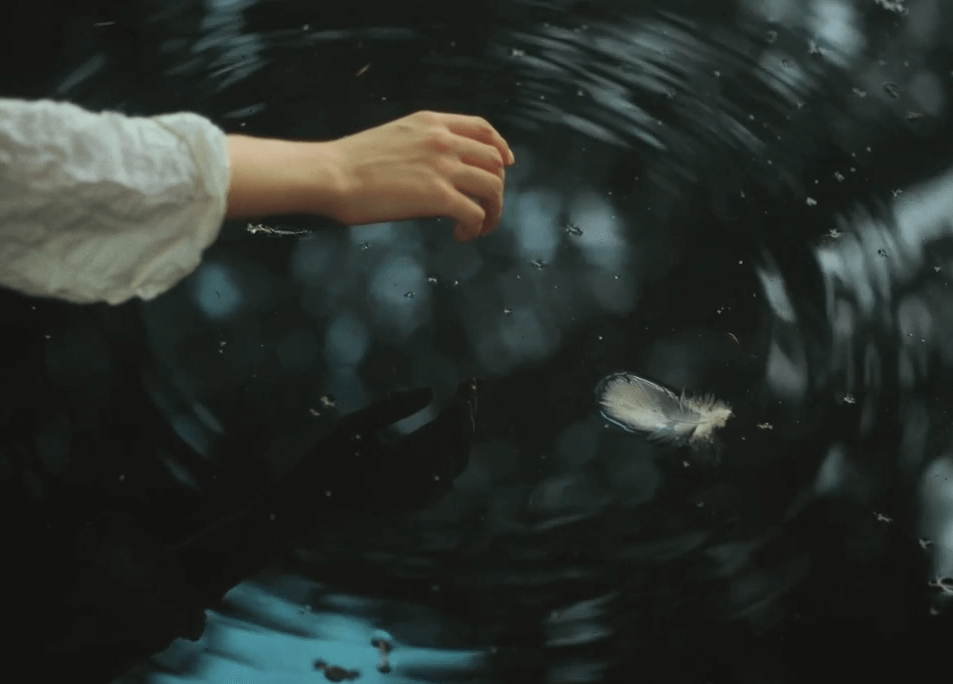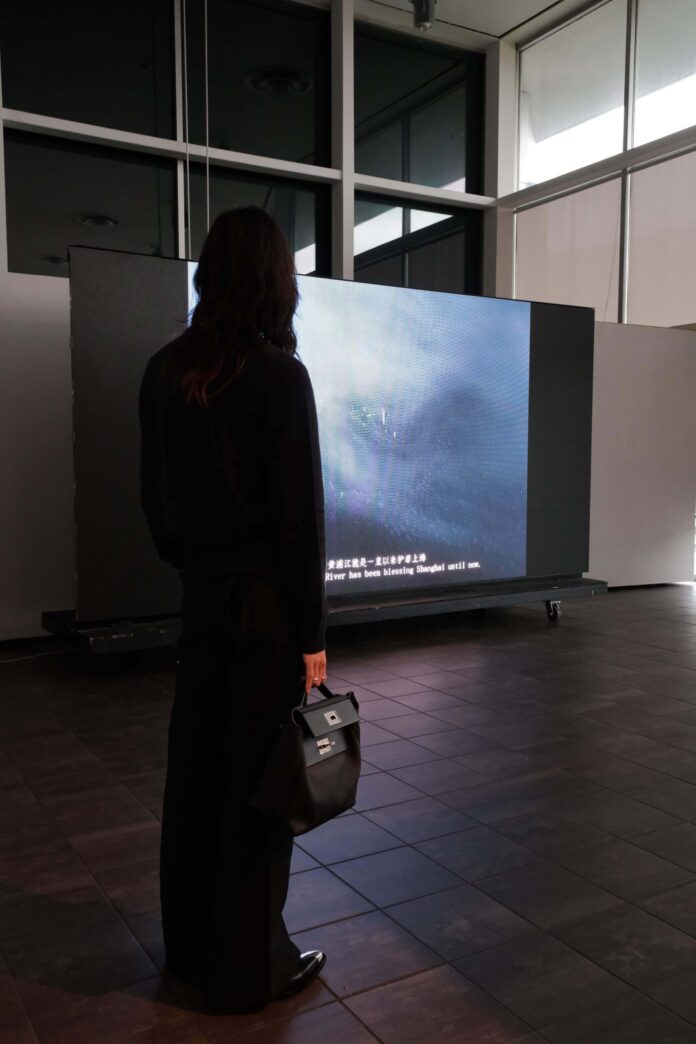Humans possess free will – an ability to shape our lives and choose our paths. But how free are we, truly? Raised by parents who embody ancestral traditions, we carry the influences of those who came before us. Our environments further mould us, creating a delicate tension between individuality and inheritance. This dynamic interplay is central to Ziyi Wang’s evocative film and performance work. Her art invites us to question: How much do we honour ancestral traditions, and how much do we adapt them to navigate the present without severing ties to the past?
Ziyi Wang (b. 1999) is a digital artist specialising in moving images, experimental music, and mysticism. Movements recently have been presented in the exhibition “Call It a Day” at Lipont Gallery, Vancouver, Canada. In Movements, we see the performer dance in a forest and verbalise these connections to her past and the rituals that tie her to her ancestors. While it ties to her personal history, ritual movements through expressive body language occur throughout human history in Native American traditions to the whirling dervishes in Sufism. There’s something spiritual about ritualised movement that can connect us to the past, deliver us to a trance-like state and discover deeper meaning. These movements anchor us to the past, ground us in the present, and at times, transport us into a meditative state where deeper meaning can unfold.

The performer’s graceful movements mimic those of the feather that floats in the wind and on the water – it feels light and free, but now that the feather is no longer attached to a bird is it lost or is it free? Similarly, when we let go of traditions, are we unmoored and lost, or do we find freedom? When we cling to the past, are we weighed down, or do we draw strength and inspiration from its lessons? These questions, central to her work, echo the universal human experience of navigating identity and heritage.

Almost all of humanity’s history has us in direct contact with nature and the earth and it’s only recently we’ve moved into modern housing and we rarely make contact with the leaves and soil around us with our bare skin, unlike the dancer in the film who has her feet covered in soil by the end of her performance. Research is being done into the positive effects of ‘earthing’ – touching the soil with our bare feet every day – and whether this can deliver health benefits, much like how being out in nature can lift our mood.
The work triggers an instinct in me to get out more, away from behind a computer and into nature – as most of us did when under restrictions during the global pandemic. Forcing us to interact with the natural world reminded us of how important it is to our physical and mental health, and yet this was swiftly forgotten by many in post-pandemic times.
As Ziyi Wang’s practice develops I’d like to see her delve further into these rituals and traditions passed down from her ancestors. It would be exciting to see her delve deeper into the ancestral rituals that inspire her. What knowledge has been lost, and why? What remains hidden in archives, waiting to be revived through art? Such explorations could forge stronger connections between past and present, blending historical research with her freedom of expression
I’d also like to see her focus on that connection and harmony with nature that many of us are missing in our lives – something that will become a greater issue as it’s forecast that two-thirds of the global population will be in cities by 2050.
The mixture of ritualised performance, links to our ancestors and the connection to nature are personal to the artist and are universal themes that most viewers can connect with. It ensures there is huge potential for her artistic practice to explore these themes in greater depth and create new compelling works based on that research.

